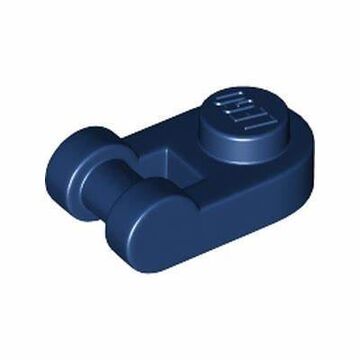Laptops vs. Desktops: Which is Right for You?
When it comes to buying a computer, there are two main options: laptops and desktops. Both have their own advantages and disadvantages, and deciding which one is right for you depends on your individual needs and preferences. In this article, we’ll explore the differences between laptops and desktops, and help you decide which one is the better fit for your lifestyle.
Portability vs. Power: The Main Differences
One of the most significant differences between laptops and desktops is their portability. Laptops are designed to be lightweight and portable. This makes them perfect for people who are always on the go. They can be easily transported from place to place. And their battery life allows you to use them without being plugged in. On the other hand, desktops are typically large and stationary, making them less portable. However, desktops are generally more powerful than laptops, as they have more space for advanced components like graphics cards, cooling systems, and high-end processors.
Performance vs. Convenience: Which Matters More?
When it comes to performance, desktops have the upper hand. Because they have more space for components, they can be customized to perform at a higher level than most laptops. They’re also more flexible when it comes to upgrading or replacing components, making them a better choice for people who want to keep their computer running smoothly for years to come. On the other hand, laptops are more convenient than desktops. They’re easier to set up and use, and they don’t require a lot of space. They’re also a better option for people who work remotely or travel frequently.
Price vs. Longevity: What’s the Best Value?
Another important consideration when choosing between a laptop and a desktop is price. Laptops are generally more expensive than desktops, due to their portability and convenience. However, desktops tend to last longer than laptops, which can make them a better value in the long run. They’re also easier to repair and upgrade, which can save you money in the long run. Ultimately, the best value depends on your individual needs and budget.
Which is Right for You: A Recap
In summary, the decision between a laptop and a desktop depends on a few key factors. If you’re looking for portability and convenience, a laptop is probably the best choice for you. However, if you need a high-performance computer for gaming, video editing, or other intensive tasks, a desktop is the better option. Additionally, if you want a computer that will last for a long time and be easy to repair and upgrade, a desktop is the better choice.
Laptop vs. Desktop: Which One Fits Your Lifestyle Better?
When deciding between a laptop and a desktop, it’s essential to consider your lifestyle and how you’ll be using your computer. Here are some additional factors to keep in mind:
- Mobility: If you’re always on the go and need a computer you can take with you, a laptop is the obvious choice. Whether you need to work from a coffee shop or take notes in class, a laptop will give you the flexibility you need. If you work from home or have a dedicated workspace, a desktop might be a better choice.
- Screen Size: If you’re planning on using your computer for tasks that require a large screen, such as video editing or gaming, a desktop is the way to go. Desktops usually have larger monitors, and you can add multiple monitors to your setup. However, if you don’t need a large screen, a laptop is the more portable option.
- Battery Life: If you’re planning on using your computer for extended periods without access to an outlet, battery life is an important consideration. Laptops have built-in batteries that allow you to work without being plugged in, while desktops require a constant power source.
- Ergonomics: If you’re concerned about ergonomics, a desktop may be a better option. With a desktop, you can customize your workspace to ensure that your keyboard, mouse, and monitor are at the right height and distance. With a laptop, you’re limited to the built-in keyboard and trackpad, which may not be as comfortable.
- Upgradability: If you want a computer that you can upgrade over time, a desktop is the better option. With a desktop, you can easily swap out components like the CPU, RAM, and graphics card. With a laptop, the upgrade options are more limited.
Choosing the Right Device for Your Needs
Ultimately, the choice between a laptop and a desktop depends on your needs and priorities. Here are some additional factors to consider:
- Budget: Laptops are generally more expensive than desktops, so if you’re on a tight budget, a desktop may be the better choice.
- Performance: If you need a computer that can handle intensive tasks like gaming or video editing, a desktop is the way to go. Laptops may struggle with these tasks, especially if they have integrated graphics.
- Durability: Laptops are more fragile than desktops and may not hold up as well over time. If you’re looking for a computer that will last for years, a desktop is a better choice.
- Convenience: Laptops are more convenient than desktops, especially if you’re always on the go. With a laptop, you can work from anywhere and don’t need a dedicated workspace.
Some Pros and Cons of Laptops and Desktops
To help you make a more informed decision, here are some additional pros and cons of laptops and desktops:
Laptops:
Pros:
- Portability: The ability to take your computer with you wherever you go.
- Convenience: Laptops are easy to set up and use, making them a great option for beginners.
- Battery Life: Laptops have built-in batteries. You can work without being plugged in.
- Space-Saving: Laptops don’t take up much space, making them a good option for small apartments or shared living spaces.
Cons:
- Performance: Laptops are generally less powerful than desktops and may struggle with intensive tasks.
- Limited Upgrade Options: Upgrading a laptop can be challenging, and some components may be difficult or impossible to replace.
- Fragility: Laptops are more fragile than desktops and may not hold up as well over time.
- Price: Laptops are generally more expensive than desktops, especially high-end models.
Desktops:
Pros:
- Performance: Desktops are generally more powerful than laptops and can handle intensive tasks with ease.
- You can easily upgrade or customize a desktop to suit your needs. A desktop is built to last and can hold up well over time.
- Price: Desktops are generally less expensive than laptops, especially high-end models.
Cons:
- Space: Desktops take up a lot of space and require a dedicated workspace.
- Portability: Desktops are not portable. You can not move them easily from place to place.
- Set-Up: Setting up a desktop can be more challenging than setting up a laptop, especially for beginners.
- Power Consumption: Desktops require a constant power source and can consume more energy than laptops.
In Conclusion
Choosing between a laptop and a desktop can be a challenging decision, but understanding the differences between the two can make the process easier. By considering factors like mobility, screen size, battery life, ergonomics, budget, performance, and durability, you can find the computer that’s right for your needs. Whether you opt for a laptop or a desktop, make sure to do your research and choose a device that will serve you well for years to come.




